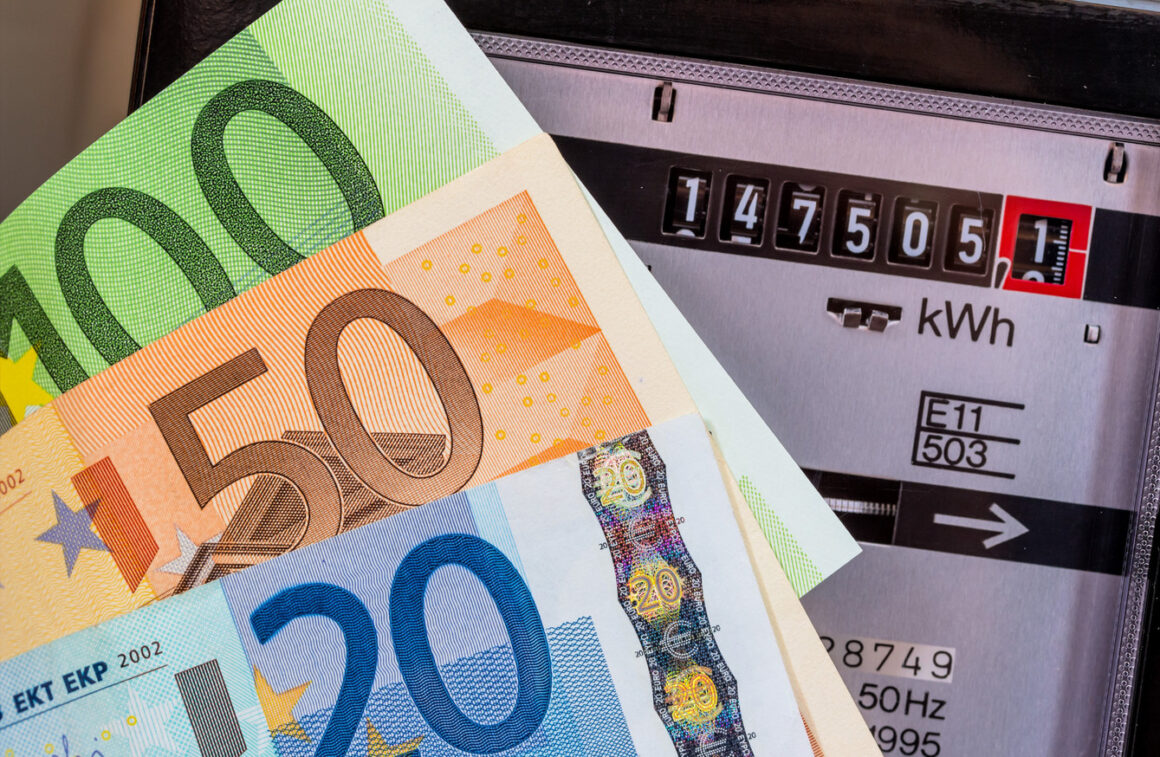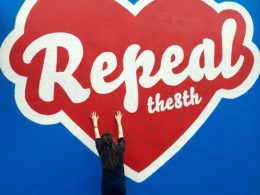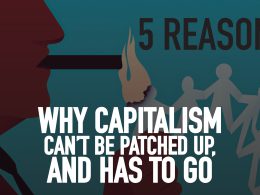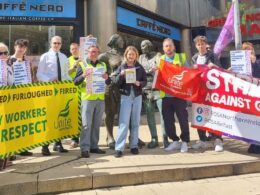By Finghín Kelly
With soaring prices for gas and electricity, many more households will struggle to make ends meet and pay their bills this winter. Higher tariffs kicked in this month, but even before the bills with these higher prices arrive people are struggling.
Anticipating these price hikes and under pressure from below the government and its regulator – the Commission for the Regulation of Utilities (CRU) – were pushed into extending the ban on disconnections this winter. This ‘moratorium’ however will only apply to people who pay for gas and electricity through bills. For those on prepaid or pay-as-you-go meters for electricity or gas, the fear of the lights going out or the heating turning off this winter will still be there.
Hundreds of thousands impacted
This is not a small cohort of people. 340,000 households have pay-as-you-go electricity meters – around one in six households! There is also 117,000 households with prepaid gas meters.
A generation of neo-liberal and austerity policies has meant a decade of wage stagnation, low pay and cuts and privatisation of public services. This sees large portions of working-class people enter this cost of living crisis with very few resources. The Central Bank this week announced that 180,000 households don’t have €500 in savings – just under 10% of the population! Is any surprise therefore that Electric Ireland told an Oireachtas committee this week that 125,000 households are already in arrears on their bills?
Pay-as-you-go meters cut off gas or electricity to the house once the credit and the small ‘emergency credit’ overdraft is used up. If you don’t have money to top up you will stay in the dark until you do!
The exclusion of pay-as-you-go customers from the disconnection’s moratorium will mean more people facing the stark choice of using their last €10 to keep the lights on or put food on the table.
Regular disconnections caused by these meters lead to doing things like not filling their fridges or freezers for fear of food going off due to disconnections, skipping meals to buy credit or not cooking to use less gas or electricity. There are also examples of people planning ahead and stocking up on candles and torches.
Extortionate costs
As well as having the threat of disconnection hanging over them, these households also pay extortionate amounts for electricity from these meters. It is estimated that it costs an extra €400 to €600 a year extra in electricity.
These meters have dramatically increased in use in the last two decades. Why is this? It is completely tied to the privatisation and liberalisation of electricity and gas. These vital utilities that are essential are treated as sources of profit and speculation. For a profit-maximising company, it is a problem to have a cohort of customers that are not regular in paying their bills or who need to have some debts written off. It cuts their revenue and therefore hits their profits. They want to eliminate it and the way they do it is by pushing people onto these meters.
An estimated 90,000 of the pay-as-you-go electricity meters are people who are paying down debt through the meters.
Capitalism sees basic human needs as a source of speculation and profit. A feature of the last major financial crash was how people on lower incomes were pushed into ‘subprime’ loans as the only way they could provide for their need for housing. In doing so, paying higher interest rates and creating massive profits for the banks. There is a parallel with these meters – those who find it hard to make ends meet are paying over the odds and are supplying super profits to private operators.
The growth in these meters is also rooted in the massive increase in the cost of gas and electricity due to liberalisation. Prices were consciously hiked to provide profits for private companies entering the ‘market’. More expensive bills in turn increased arrears which in turn saw more people moving to pay as you go to pay down arrears or out of fear of getting big bills.
Massively profitable
Pay as you go is massively profitable. This is seen most graphically with Pre Pay Power. This company has made a killing with the liberalisation of the electricity sector. They now have about 7.6% of the energy market. In the company’s last set of annual accounts, they reported a 27% increase in their profits, up to €14.2m (€65 per average customer).
PrePayPower is majority owned by ‘financier’ Ulric Kenny. Kenny increased his wealth by €30m in 2020 alone. Another major shareholder in the company, Andrew Collins, was propelled into Ireland’s Times ‘Rich List’ in 2017 on the back of profiteering of this company, the Times stated that Pre Pay Power made him “his third fortune”.
Pinergy is another exclusively run pay-as-you-go company and is majority owned by Peter Coates. The Coates family are listed by the Times Rich List as the 16th wealthiest family in the UK, worth £8.637bn (approx. €9.947bn). They increased their wealth by over €200 million last year!
Pay-as-you-go meters are clearly a mechanism to directly transfer wealth from some of the poorest sections of our society to some of the richest.
Socialist Party TD, Mick Barry, was to the fore in raising this issue in the Dáil in the Budget week.
Bring energy into public ownership
Instead of taking on these profiteers as called for by Mick, the government’s response has been to say to people that they should go and seek money from Community Welfare Officers. As well as being completely impractical for people who get a beep from their meter in the middle of a busy week, it is an insult. Nobody should have to make a case to social welfare in order to ensure their heating or lights don’t go out.
Pay-as-you-go meters should go – nobody should be forced onto this system, nor should there be any barriers for people to come off these meters. As things stand a myriad of exit fees are applied to people moving off meters. To change a gas meter there is a €199 fee! All barriers should be abolished. We also need to see measures such as allowing more emergency credit.
Electricity and heating are key utilities and basic needs. Instead of having this as a commodity, we need to provide them on the basis of need. This could be done if the interests of these privateers are challenged, and the energy sectors are brought into public ownership and run to provide these essential utilities as a right instead of enriching millionaires. This sector should be democratically run by workers and communities. A system run in this way could take steps like guaranteeing all households an allowance of energy free at the point of use and completely outlaw disconnections.












